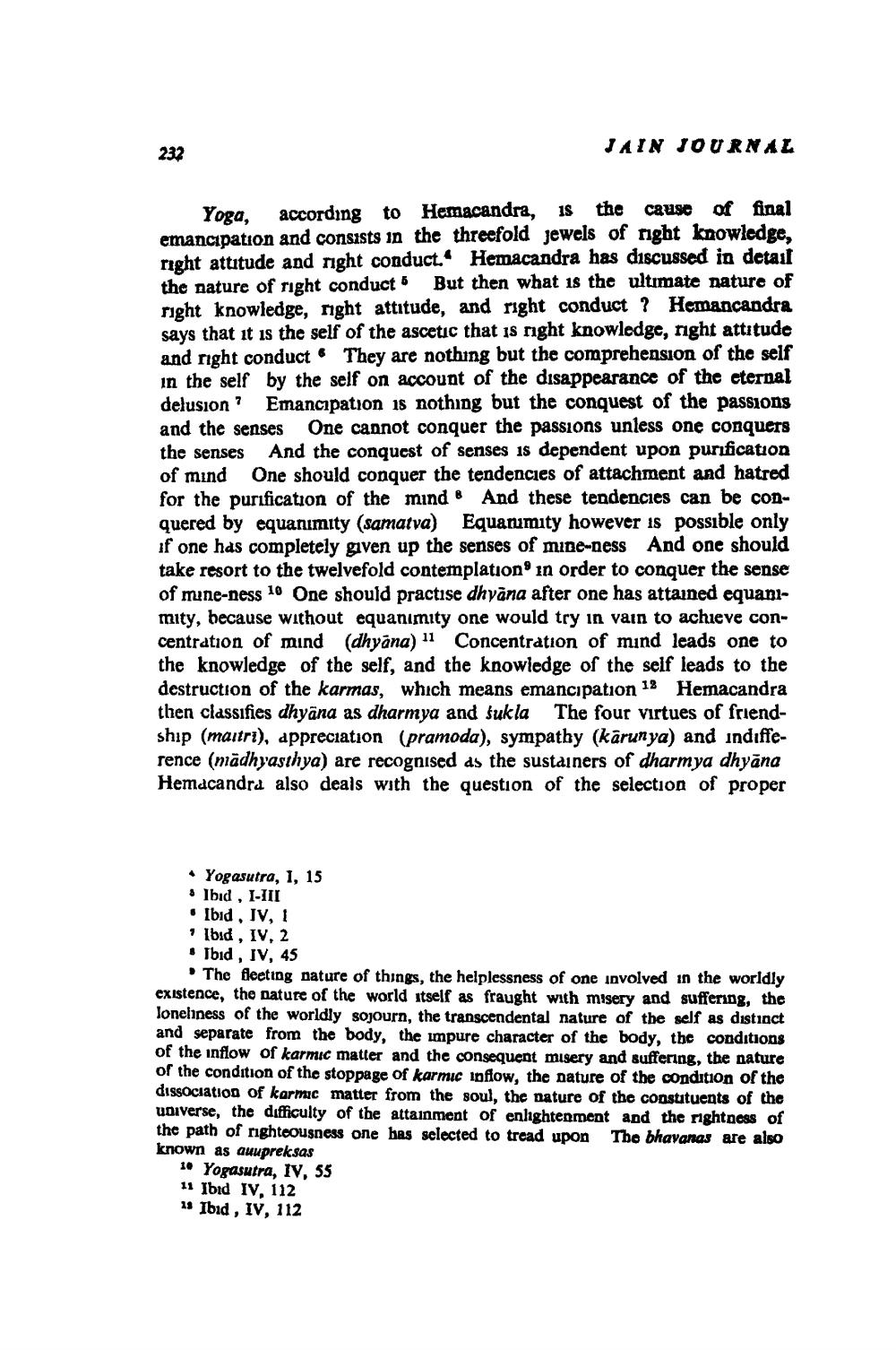________________
232
JAIN JOURNAL
Yoga, according to Hemacandra, 18 the cause of final emancipation and consists in the threefold jewels of right knowledge, right attitude and right conduct.“ Hemacandra has discussed in detail the nature of right conduct 6 But then what is the ultimate nature of right knowledge, night attitude, and right conduct ? Hemancandra says that it is the self of the ascetic that is right knowledge, right attitude and right conduct They are nothing but the comprehension of the self in the self by the self on account of the disappearance of the eternal delusion? Emancipation is nothing but the conquest of the passions and the senses One cannot conquer the passions unless one conquers the senses And the conquest of senses is dependent upon purification of mind One should conquer the tendencies of attachment and hatred for the purification of the mind & And these tendencies can be conquered by equanimity (samatva) Equanimity however is possible only if one has completely given up the senses of mine-ness And one should take resort to the twelvefold contemplation in order to conquer the sense of mine-ness 10 One should practise dhyana after one has attained equanimity, because without equanimity one would try in vain to achieve concentration of mind (dhyana) 11 Concentration of mind leads one to the knowledge of the self, and the knowledge of the self leads to the destruction of the karmas, which means emancipation 12 Hemacandra then classifies dhyāna as dharmya and sukla The four virtues of friendship (maitri), appreciation (pramoda), sympathy (karunya) and indifference (madhyasthya) are recognised as the sustainers of dharmya dhyāna Hemacandra also deals with the question of the selection of proper
• Yogasutra, 1, 15 • Ibid, I-III • Ibid. IV, 1 * Ibid, IV, 2 • Ibid, IV, 45
. The fleeting nature of things, the helplessness of one involved in the worldly existence, the nature of the world itself as fraught with misery and suffering, the loneliness of the worldly sojourn, the transcendental nature of the self as distinct and separate from the body, the impure character of the body, the conditions of the inflow of karmic matter and the consequent misery and suffering, the nature of the condition of the stoppage of karmic inflow, the nature of the condition of the dissociation of karmic matter from the soul, the nature of the constituents of the universe, the difficulty of the attainment of enlightenment and the rightness of the path of righteousness one has selected to tread upon The bhavanas are also known as auupreksas
10 Yogasutra, IV, 55 11 Ibid IV, 112 11 Ibid , IV, 112




